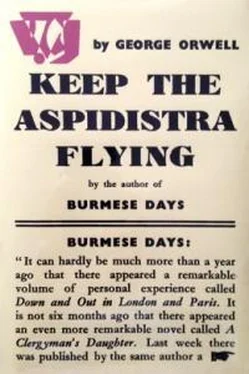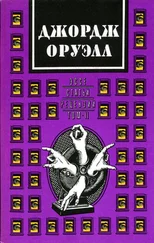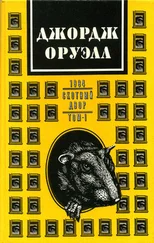Nevertheless he perceived that in a way it is necessary to marry. If marriage is bad, the alternative is worse. For a moment he wished that he were married; he pined for the difficulty of it, the reality, the pain. And marriage must be indissoluble, for better for worse, for richer for poorer, till death do you part. The old Christian ideal—marriage tempered by adultery. Commit adultery if you must, but at any rate have the decency to CALL it adultery. None of that American soul–mate slop. Have your fun and then sneak home, juice of the forbidden fruit dripping from your whiskers, and take the consequences. Cut–glass whisky decanters broken over your head, nagging, burnt meals, children crying, clash and thunder of embattled mothers–in–law. Better that, perhaps, than horrible freedom? You'd know, at least, that it was real life that you were living.
But anyway, how can you marry on two quid a week? Money, money, always money! The devil of it is, that outside marriage, no decent relationship with a woman is possible. His mind moved backwards, over his ten years of adult life. The faces of women flowed through his memory. Ten or a dozen of them there had been. Tarts, also. Comme au long d'un cadavre un cadavre etendu. And even when they were not tarts it had been squalid, always squalid. Always it had started in a sort of cold–blooded wilfulness and ended in some mean, callous desertion. That, too, was money. Without money, you can't be straightforward in your dealings with women. For without money, you can't pick and choose, you've got to take what women you can get; and then, necessarily, you've got to break free of them. Constancy, like all other virtues, has got to be paid for in money. And the mere fact that he had rebelled against the money code and wouldn't settle down in the prison of a 'good' job—a thing no woman will ever understand—had brought a quality of impermanence, of deception, into all his affairs with women. Abjuring money, he ought to have abjured women to. Serve the money–god, or do without women—those are the only alternatives. And both were equally impossible.
From the side–street just ahead, a shade of white light cut through the mist, and there was a bellowing of street hawkers. It was Luton Road, where they have the open–air market two evenings a week. Gordon turned to his left, into the market. He often came this way. The street was so crowded that you could only with difficulty thread your way down the cabbage–littered alley between the stalls. In the glare of hanging electric bulbs, the stuff on the stalls glowed with fine lurid colours—hacked, crimson chunks of meat, piles of oranges and green and white broccoli, stiff, glassy–eyed rabbits, live eels looping in enamel troughs, plucked fowls hanging in rows, sticking out their naked breasts like guardsmen naked on parade. Gordon's spirits revived a little. He liked the noise, the bustle, the vitality. Whenever you see a street–market you know there's hope for England yet. But even here he felt his solitude. Girls were thronging everywhere, in knots of four or five, prowling desirously about the stalls of cheap underwear and swapping backchat and screams of laughter with the youths who followed them. None had eyes for Gordon. He walked among them as though invisible, save that their bodies avoided him when he passed them. Ah, look there! Involuntarily he paused. Over a pile of art–silk undies on a stall, three girls were bending, intent, their faces close together—three youthful faces, flower–like in the harsh light, clustering side by side like a truss of blossom on a Sweet William or phlox. His heart stirred. No eyes for him, of course! One girl looked up. Ah! Hurriedly, with an offended air, she looked away again. A delicate flush like a wash of aquarelle flooded her face. The hard, sexual stare in his eyes had frightened her. They flee from me that sometime did me seek! He walked on. If only Rosemary were here! He forgave her now for not writing to him. He could forgive her anything, if only she were here. He knew how much she meant to him, because she alone of all women was willing to save him from the humiliation of his loneliness.
At this moment he looked up, and saw something that made his heart jump. He changed the focus of his eyes abruptly. For a moment he thought he was imagining it. But no! It WAS Rosemary!
She was coming down the alley between the stalls, twenty or thirty yards away. It was as though his desire had called her into being. She had not seen him yet. She came towards him, a small debonair figure, picking her way nimbly through the crowd and the muck underfoot, her face scarcely visible because of a flat black hat which she wore cocked down over her eyes like a Harrow boy's straw hat. He started towards her and called her name.
'Rosemary! Hi, Rosemary!'
A blue–aproned man thumbing codfish on a stall turned to stare at him. Rosemary did not hear him because of the din. He called again.
'Rosemary! I say, Rosemary!'
They were only a few yards apart now. She started and looked up.
'Gordon! What are you doing here?'
'What are YOU doing here?'
'I was coming to see you.'
'But how did you know I was here?'
'I didn't. I always come this way. I get out of the tube at Camden Town.'
Rosemary sometimes came to see Gordon at Willowbed Road. Mrs Wisbeach would inform him sourly that 'there was a young woman to see him', and he would come downstairs and they would go out for a walk in the streets. Rosemary was never allowed indoors, not even into the hall. That was a rule of the house. You would have thought 'young women' were plague–rats by the way Mrs Wisbeach spoke of them. Gordon took Rosemary by the upper arm and made to pull her against him.
'Rosemary! Oh, what a joy to see you again! I was so vilely lonely. Why didn't you come before?'
She shook off his hand and stepped back out of his reach. Under her slanting hat–brim she gave him a glance that was intended to be angry.
'Let me go, now! I'm very angry with you. I very nearly didn't come after that beastly letter you sent me.'
'What beastly letter?'
'You know very well.'
'No, I don't. Oh, well, let's get out of this. Somewhere where we can talk. This way.'
He took her arm, but she shook him off again, continuing however, to walk at his side. Her steps were quicker and shorter than his. And walking beside him she had the appearance of something extremely small, nimble, and young, as though he had had some lively little animal, a squirrel for instance, frisking at his side. In reality she was not very much smaller than Gordon, and only a few months younger. But no one would ever have described Rosemary as a spinster of nearly thirty, which in fact she was. She was a strong, agile girl, with stiff black hair, a small triangular face, and very pronounced eyebrows. It was one of those small, peaky faces, full of character, which one sees in sixteenth– century portraits. The first time you saw her take her hat off you got a surprise, for on her crown three white hairs glittered among the black ones like silver wires. It was typical of Rosemary that she never bothered to pull the white hairs out. She still thought of herself as a very young girl, and so did everybody else. Yet if you looked closely the marks of time were plain enough on her face.
Gordon walked more boldly with Rosemary at his side. He was proud of her. People were looking at her, and therefore at him as well. He was no longer invisible to women. As always, Rosemary was rather nicely dressed. It was a mystery how she did it on four pounds a week. He liked particularly the hat she was wearing—one of those flat felt hats which were then coming into fashion and which caricatured a clergyman's shovel hat. There was something essentially frivolous about it. In some way difficult to be described, the angle at which it was cocked forward harmonized appealingly with the curve of Rosemary's behind.
Читать дальше








